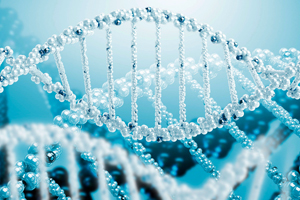Ru
|
Eng
Belarusian, Russian scientists to study human DNA in new Union State program
16.06.2015

Scientists of Belarus and Russia will study human DNA within the framework of a new program of the Union State of Belarus and Russia, BelTA learned from Professor Alexander Kilchevsky, Chief Academic Secretary of the National Academy of Sciences of Belarus, during an online video briefing held on 16 June to highlight new research accomplishments of Belarusian and Russian scientists in human DNA studies.
Alexander Kilchevsky noted: “The idea for the program was born over two years ago. Belarusian and Russian scientists boast rich experience of studying human genetics. This is why after talking to our colleagues — the General Genetics Institute of the Russian Academy of Sciences — we have decided to put together such a Union State program,” he noted.
Alexander Kilchevsky explained that the program is titled as DNA Identification and comprises two main blocks. The first one provides for working out new methods for personal identification for the sake of forensic purposes. A small amount of biological material will be used to identify people. “We are going to work out methods to identify certain attributes and will try to determine the person’s age on the basis of gene expression,” said the Chief Academic Secretary. DNA studies for healthcare purposes represent the second block. Patient-specific healthcare is one of the trends that develop today, said the official.
According to Alexander Kilchevsky, the Union State program DNA Identification will also serve import substitution services. “Unfortunately, in some cases we have to import reagents for all these tests. Our task is to come up with domestic reagents — Russia-made ones in this instance — to replace imports,” he said.
The customers of the Union State program are the National Academy of Sciences of Belarus and the Federal Agency of Scientific Organizations (Russia). The program is designed to run for five years. “Since it is a complex program, representatives of relevant agencies of Belarus and Russia such as the Investigation Committee and personnel of healthcare institutions will take part in it,” said Alexander Kilchevsky.
Alexander Kilchevsky noted: “The idea for the program was born over two years ago. Belarusian and Russian scientists boast rich experience of studying human genetics. This is why after talking to our colleagues — the General Genetics Institute of the Russian Academy of Sciences — we have decided to put together such a Union State program,” he noted.
Alexander Kilchevsky explained that the program is titled as DNA Identification and comprises two main blocks. The first one provides for working out new methods for personal identification for the sake of forensic purposes. A small amount of biological material will be used to identify people. “We are going to work out methods to identify certain attributes and will try to determine the person’s age on the basis of gene expression,” said the Chief Academic Secretary. DNA studies for healthcare purposes represent the second block. Patient-specific healthcare is one of the trends that develop today, said the official.
According to Alexander Kilchevsky, the Union State program DNA Identification will also serve import substitution services. “Unfortunately, in some cases we have to import reagents for all these tests. Our task is to come up with domestic reagents — Russia-made ones in this instance — to replace imports,” he said.
The customers of the Union State program are the National Academy of Sciences of Belarus and the Federal Agency of Scientific Organizations (Russia). The program is designed to run for five years. “Since it is a complex program, representatives of relevant agencies of Belarus and Russia such as the Investigation Committee and personnel of healthcare institutions will take part in it,” said Alexander Kilchevsky.
SCIENCE. TECHNOLOGY. INNOVATIONS
13.08.2024
28.06.2024
28.06.2024
25.06.2024
05.06.2024
15.05.2024
15.05.2024
26.04.2024
26.04.2024
26.04.2024













